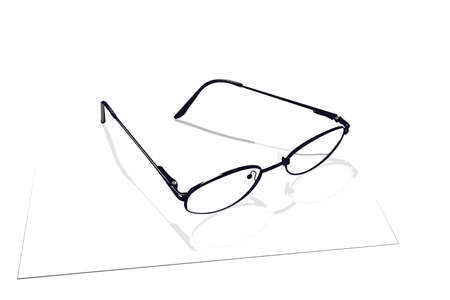Introduction: The Blue Light Conversation in the UK
In recent years, blue light blocking glasses have surged in popularity across Britain, finding their way onto the shelves of high street opticians and online retailers alike. With many Britons now spending prolonged hours in front of digital screens—be it laptops at work, smartphones on the commute, or televisions at home—the conversation around blue light exposure has never been more relevant. This increased screen time has sparked both curiosity and concern about the potential effects of blue light on eye health, sleep quality, and overall wellbeing. As such, British consumers are increasingly seeking solutions that claim to mitigate these issues, with blue light blocking glasses being one of the most talked-about options. But what should UK residents genuinely know before investing in a pair? This article delves into the science, marketing claims, and real-world benefits (or limitations) of blue light blocking glasses to help you make an informed decision tailored to the British lifestyle.
2. What is Blue Light and Where Are We Exposed in Daily British Life?
Blue light is a high-energy visible (HEV) light with a wavelength between 400–500 nanometres, falling just next to ultraviolet on the light spectrum. While blue light occurs naturally—think sunlight—it’s also emitted by various artificial sources that are integral to modern British life. Understanding where we encounter blue light daily is vital for assessing whether blue light blocking glasses are necessary for UK consumers.
Primary Sources of Blue Light in the UK
| Source | Example in British Context | Typical Exposure Setting |
|---|---|---|
| Mobile Phones | iPhone, Samsung Galaxy, etc. | Commuting on the Tube, checking news, messaging |
| Computers & Laptops | Office desktops, home laptops (HP, Dell, Apple) | Workspaces, remote work setups, university libraries |
| Tablets | iPads, Amazon Fire Tablets | E-reading on trains, streaming at home |
| LED Lighting | Modern household bulbs, street lamps | Kitchens, offices, public spaces after dark |
| Televisions | Smart TVs (Samsung, LG) | Evening entertainment in living rooms across Britain |
The Prevalence of Blue Light in British Homes and Workplaces
The shift towards energy-efficient LED lighting and an increase in screen-based activities have made blue light exposure almost unavoidable for people living and working in the UK. According to Ofcom’s 2023 report, the average Brit spends over four hours a day on smartphones and other digital devices—a figure that rises for younger age groups and office workers. Additionally, the widespread adoption of LED bulbs since the phase-out of incandescent lighting means even our evening environments are rich in blue light.
Why Does This Matter?
The omnipresence of blue light raises questions about its long-term impact on eye health and sleep patterns for British consumers. While natural daylight exposure is essential for regulating circadian rhythm and mood, excess artificial blue light—especially after sunset—may contribute to digital eye strain and disrupted sleep. Thus, understanding these sources sets the stage for evaluating whether blue light blocking glasses are worth considering for those navigating modern British routines.
![]()
3. Do Blue Light Blocking Glasses Work? The Science & Evidence
When it comes to blue light blocking glasses, British consumers are right to ask whether the science supports their claims. While the marketing around these lenses is persuasive, a critical look at current research and NHS guidance reveals a more nuanced picture.
The Current State of Scientific Research
Multiple studies have attempted to assess whether blue light blocking glasses genuinely reduce eyestrain or improve sleep quality. Systematic reviews in reputable medical journals often highlight that, while blue light can affect circadian rhythms, the amount emitted by digital screens is relatively low compared to natural sunlight. Most trials suggest that wearing these glasses does not produce a statistically significant reduction in digital eye strain symptoms when compared with standard lenses.
NHS Guidance on Blue Light Filters
The NHS has taken a pragmatic approach. In its official advice, the NHS states there is currently insufficient evidence to recommend blue light blocking glasses for the general population. Instead, they advise following the “20-20-20 rule”—taking a 20-second break every 20 minutes and looking at something 20 feet away—to alleviate digital eye fatigue. This simple strategy is widely promoted over purchasing specialised eyewear.
Expert Opinions from UK Optometrists
Leading optometrists in the UK echo these sentiments. The Association of Optometrists points out that while blue light exposure from screens may contribute to discomfort, it’s not proven to cause long-term damage or significantly disrupt sleep patterns for most people. Experts stress the importance of proper screen ergonomics, regular eye tests, and managing overall screen time as more effective solutions for maintaining eye health.
In summary, while blue light blocking glasses may offer subjective comfort for some individuals, the current scientific consensus in Britain suggests limited clinical benefit. British consumers are encouraged to consider established eye care practices and remain sceptical of exaggerated claims until more robust evidence emerges.
4. The British Perspective: Eye Health, Sleep, and Productivity
Understanding the value of blue light blocking glasses requires examining how blue light exposure specifically impacts people in the UK. With a high percentage of the population working in office-based or hybrid roles, digital screen time is at an all-time high across Britain. This has raised questions about how blue light affects eye health, sleep quality, and productivity—three pillars that strongly influence British work-life balance and overall wellbeing.
Eye Strain and the Modern British Workplace
According to data from the Association of Optometrists (AOP), over half of UK adults report symptoms of digital eye strain after prolonged screen use. Symptoms such as dry eyes, headaches, and blurred vision are common among professionals who spend hours on computers. The table below summarises typical daily screen time and reported eye strain rates among different sectors in Britain:
| Sector | Average Daily Screen Time | % Reporting Eye Strain |
|---|---|---|
| Office/IT | 7-9 hours | 65% |
| Education | 6-8 hours | 58% |
| Healthcare Admin | 5-7 hours | 53% |
| Retail/Service | 3-5 hours | 32% |
The Sleep Factor: Blue Light and British Bedtimes
Sleep issues are increasingly prevalent in the UK, with NHS Digital reporting that around one in three adults suffers from insomnia or disrupted sleep. Research links evening exposure to blue light—especially from mobile devices—to suppressed melatonin production, making it harder to fall asleep. Given that nearly 70% of Britons admit to using phones or tablets within an hour before bed, this presents a real concern for national sleep hygiene.
Impact on Productivity in a British Context
Poor sleep and digital eye strain can have tangible effects on daytime productivity. A study by RAND Europe estimated that insufficient sleep costs the UK economy up to £40 billion annually due to lost productivity. Employees experiencing eye discomfort or fatigue are more likely to take breaks, lose focus, or make errors during work hours.
Summary Table: Impact Overview in the UK
| Factor | Effect on British Workers |
|---|---|
| Eye Strain | Pain/discomfort; increased sick days; reduced efficiency |
| Poor Sleep Quality | Lack of concentration; higher absenteeism; mood disturbances |
| High Screen Time | Cumulative impact on both eye health and sleep patterns |
The intersection of high screen use, compromised sleep, and workplace productivity is particularly relevant for British consumers considering blue light blocking glasses. Addressing these interlinked factors could contribute to improved wellbeing and performance across the UK workforce.
5. Cost, Style, and Availability: Weighing Up the Options in the UK Market
For British consumers considering blue light blocking glasses, the current market offers a wide range of choices to suit varying needs and budgets.
Price Points: From Budget to Premium
In the UK, you’ll find blue light glasses starting from as little as £15 for basic models available online or in high street retailers like Boots or Superdrug. Mid-range options typically hover between £30 and £70, with these often offering better build quality and more attractive frames. For those seeking premium features—such as prescription lenses or designer brands—prices can exceed £100, especially when purchased through opticians like Specsavers or Vision Express.
Style Considerations: Blending Fashion and Function
The days of techy, unattractive blue light specs are gone. Today’s offerings cater to diverse tastes, ranging from minimalist clear frames to bold designer styles. Many brands now design their blue light lenses to be nearly invisible (without a yellow tint), making them suitable for both office and social settings. British brands such as Cubitts and Ace & Tate have also entered the market, combining local style sensibilities with blue light protection technology.
Where to Buy: High Street, Online & Opticians
Availability is no longer an issue—blue light glasses are widely accessible across the UK. High street chains offer affordable choices, while major opticians can provide expert advice and tailored solutions, including prescription options. For convenience and variety, online retailers like Amazon UK, Glasses Direct, and even fashion stores like ASOS stock an extensive range of non-prescription and prescription-ready models. Shopping online allows you to compare reviews and prices easily but buying from a local optician might provide added confidence regarding quality and aftercare.
Making the Right Choice
Ultimately, British consumers have flexibility to weigh cost, style preferences, and availability when selecting blue light blocking glasses. Whether prioritising affordability on the high street or seeking premium frames via an optician, there are credible options for every budget and taste in the UK market.
6. Alternatives and Practical Tips for Eye Care in the UK
While blue light blocking glasses have garnered significant attention, British consumers can effectively protect their eyes and promote better sleep with a range of practical, evidence-based strategies—often without needing to purchase specialist eyewear.
Adopt the 20-20-20 Rule
One of the most recommended practices by UK optometrists is the 20-20-20 rule: every 20 minutes, look at something 20 feet away for at least 20 seconds. This simple habit helps alleviate digital eye strain, which is common among office workers and students across Britain.
Optimise Your Lighting Environment
Avoid working in dimly lit rooms or with excessive glare from windows and overhead lights. Adjusting your screen brightness to match ambient lighting, or using desk lamps with warmer bulbs during darker British winters, can help reduce eye fatigue without the need for blue light filters.
Limit Evening Screen Time
Research suggests that reducing exposure to screens an hour before bed is more effective for maintaining healthy sleep cycles than relying solely on blue light blockers. Try setting a regular “digital sunset” in your household—perhaps substituting late-night scrolling with reading or listening to the radio, a distinctly British pastime.
Use Built-In Device Features
Most smartphones, tablets, and computers sold in the UK now offer built-in night mode or warm-tone settings (such as Apple’s Night Shift or Windows Night Light). These features automatically adjust colour temperature in the evening, minimising blue light exposure at no extra cost.
Stay Physically Active and Blink More Often
Frequent blinking keeps eyes moist, countering dryness caused by prolonged device use. Incorporating short walks or stretching breaks—a brisk stroll around your home or office—can also support overall eye comfort, aligning well with active lifestyles encouraged across Britain.
Regular Eye Tests on the NHS
The NHS recommends routine eye examinations every two years. Early detection of vision problems ensures timely intervention and tailored advice from a qualified optometrist—services widely accessible throughout the UK, often free for eligible groups.
Summary
Ultimately, while blue light blocking glasses are popular, British consumers have access to multiple proven methods for protecting their eyes and supporting good sleep hygiene. By combining these habits with regular professional check-ups, you can maintain healthy vision and sleep—without necessarily investing in specialised eyewear.
7. Conclusion: Are Blue Light Blocking Glasses Worth It for You?
After examining the available scientific evidence and considering the daily realities of British consumers, it is clear that blue light blocking glasses are not a one-size-fits-all solution. While some users in the UK report reduced eye strain and improved sleep quality, robust clinical data supporting these claims remains limited. The NHS and major UK optometry associations currently suggest that simple lifestyle changes—such as following the 20-20-20 rule, reducing screen time before bed, and ensuring good lighting—may be just as effective for most people. However, if you spend extended hours in front of digital screens and experience symptoms like tired eyes or headaches, trying blue light blocking glasses could offer subjective relief with minimal risk.
Ultimately, British consumers should weigh personal experiences against current research. Investing in blue light glasses might provide comfort for some, but expectations should remain realistic. As more studies emerge, recommendations may evolve. For now, focusing on healthy digital habits alongside any eyewear purchase will provide the greatest benefit for your eye health and wellbeing in the context of modern UK life.


